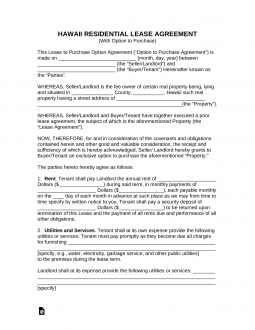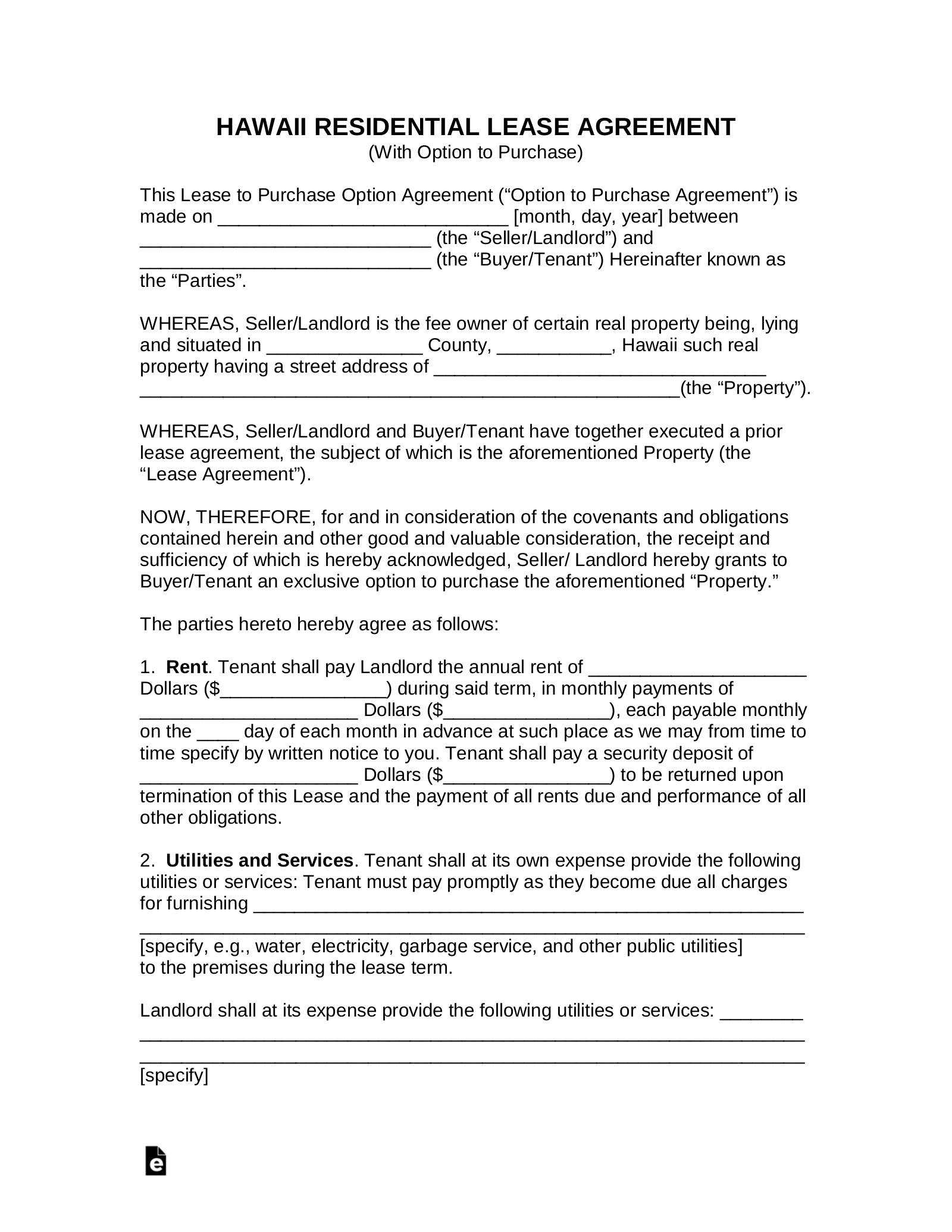Updated April 14, 2023
A Hawaii rent-to-own lease agreement is between a landlord and tenant for a rental contract that includes an option to purchase the property. The terms of the purchase are usually agreed to at the time of lease signing (i.e. purchase price, closing period, etc.). The tenant must give notice when ready to buy and the parties will enter into a purchase agreement. If the tenant does not buy the property, the lease will terminate at the end of the tenancy period.
Rental Application – Allows a landlord to screen a tenant prior to entering a rental contract.


